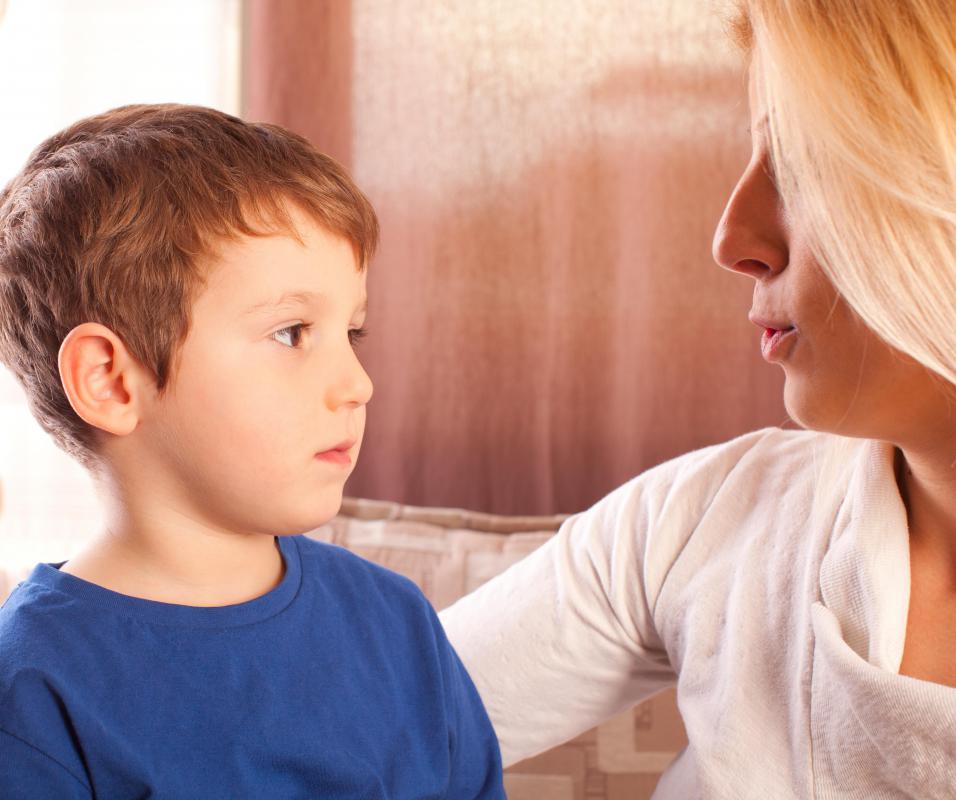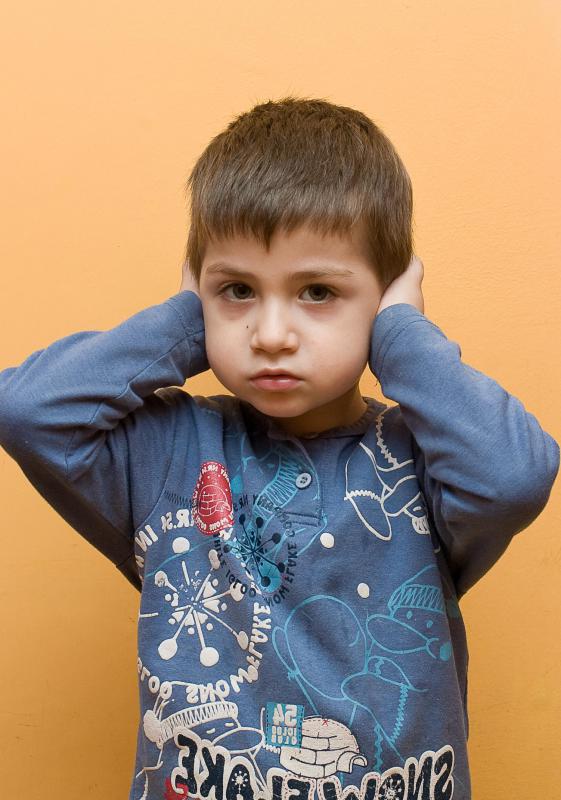At WiseGEEK, we're committed to delivering accurate, trustworthy information. Our expert-authored content is rigorously fact-checked and sourced from credible authorities. Discover how we uphold the highest standards in providing you with reliable knowledge.
What is Sensory Overload?
Sensory overload is a medical term used when a person has trouble dealing with external stimuli. For example, a person who suffers from sensory overload may have difficulty processing information if someone speaks to him while he is watching television. This is particularly common in those who are on the autism spectrum, although it can occur in other people as well. Treatment for sensory overload includes avoiding a lot of activity at one time or reducing overstimulation by using supportive devices such as headphones or sunglasses.
Those with sensory overload issues often have trouble coping with situations in which several things are happening at once. Trying to hold a conversation while exposed to other stimuli such as a television or radio may cause extreme anxiety. Fluorescent lights or being in a crowded area may also cause anxiety. Certain sounds, especially sudden loud noises, often trigger a panic episode. Even the feel of certain textures, especially certain clothing, may be difficult to handle.

The best treatment options for people who suffer from this condition involve trying to prevent the situations that trigger anxiety attacks or confusion. When in social situations, it may be helpful to walk away from the crowd every now and then in order to recover from the excess stimulation. Some people may need to spend an extended period of time alone in order to recover.

It is important to create a calm home environment for the person who struggles with sensory issues. Using soft voices and keeping radio and television use to a minimum often helps to avoid stressful situations. The affected person may like to listen to music or watch television on occasion, but it may help to not have this type of stimuli turned on constantly as a source of background noise.

Devices such as headphones, sunglasses, or ear plugs may help to reduce symptoms of sensory overload. The use of these devices may be especially helpful in situations outside of the home. Many people who have sensory overload issues become afraid to leave the comforts of home due to the possibility of encountering too much stimulation outside of the home. Learning to have some control over excess stimulation can allow the affected person to have social contact with the outside world while reducing the negative effects often associated with sensory issues. As is the case with other medical conditions, any questions or concerns should be addressed with a doctor.
AS FEATURED ON:
AS FEATURED ON:


















Discussion Comments
I feel so sorry for people who do experience sensory overload as a medical problem. I do know there are noise-canceling headphones that a lot of people wear on airplanes that really help reduce the amount of ambient noise you hear. I'm thinking about getting a pair for the next time I fly. They say you can't even hear a crying baby! Wow.
I think I might have mild visual sensory overload issues. I have to keep my computer screen very uncluttered. My browser themes are unobtrusive and when I'm working in my word processing program, all my toolbars stay up at the top of the screen, not all over it. Otherwise, all the visual stimuli starts making me anxious, and it's like I can't really *see* what I'm working on.
Sometimes, sensory overload isn't necessarily a medical condition. Sometimes, it's just the way an environment is set up. I went to this wings place a couple of weeks ago. It's a sports bar atmosphere and there were televisions *everywhere*! It was loud, bright and definitely an overload.
I ended up leaving because I couldn't take the noise. It was just too much for me. Gave me a pounding headache. I went to a local Chinese place, where the only sound was the Chinese pop music coming over the speakers. What a relief! I'll never darken the door of that other place again.
Post your comments